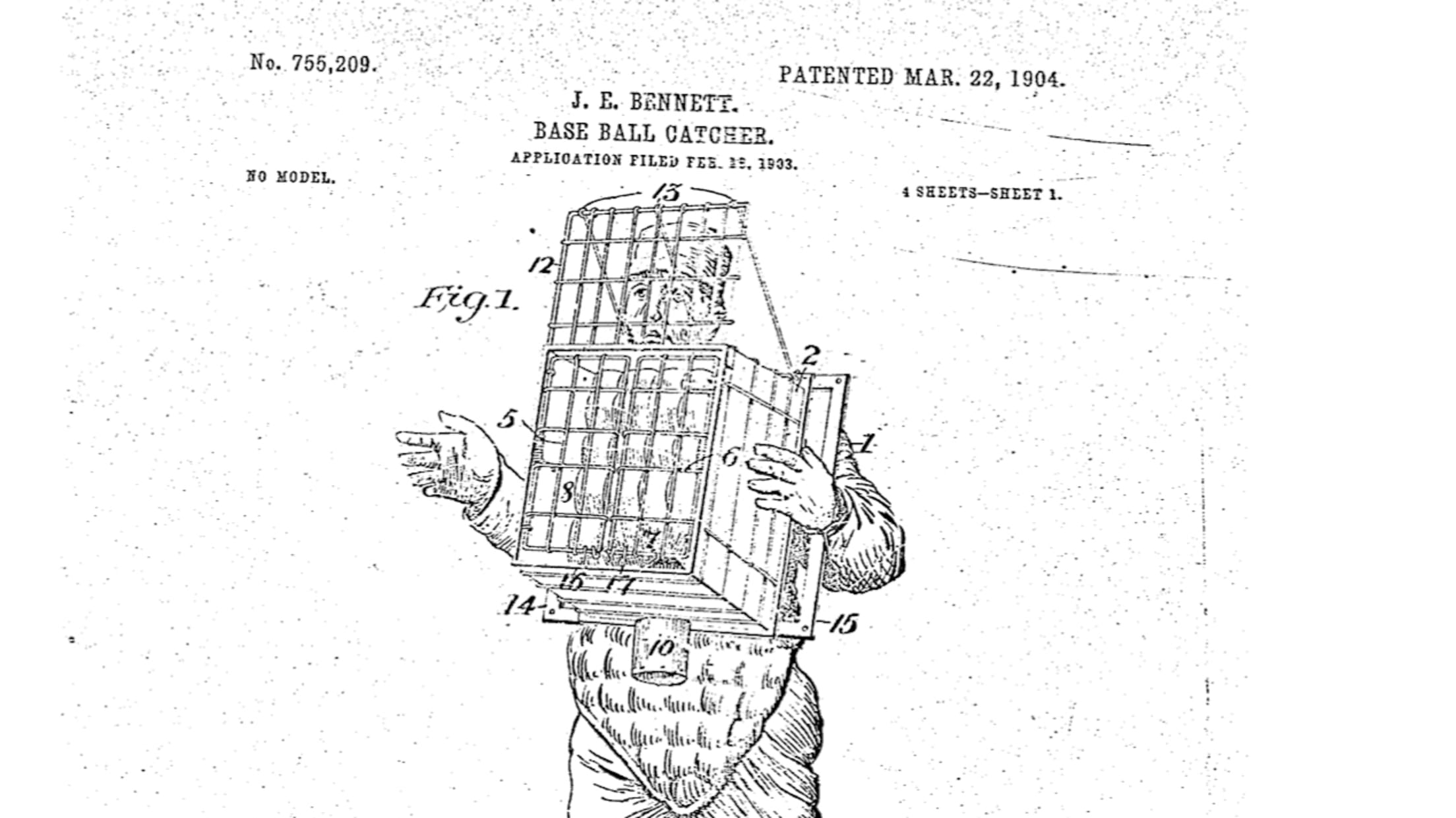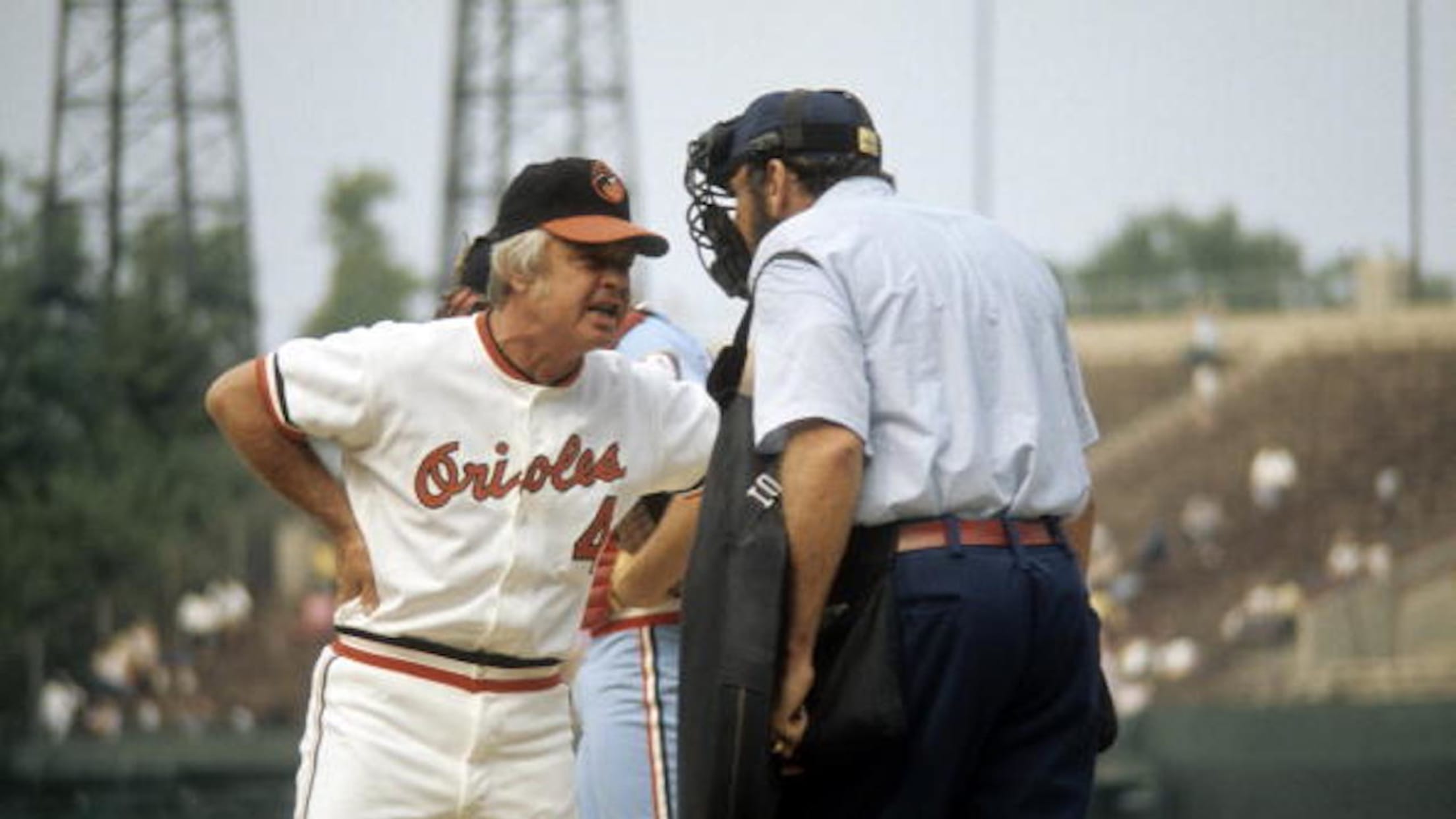Here are the stories behind seven of the wildest tie games in Major League history

On Sept. 29, 2016, a matchup between the Cubs and Pirates was suspended due to rain with the score even at 1-1 in the top of the sixth inning. Both teams' postseason fates had already been decided, so with only a few days remaining in the regular season, no makeup date was scheduled. Instead, the game was officially ruled a tie -- just the second in the 21st century, and the first since 2002.
Thanks largely to the advent of stadium lights, tie games are an increasingly rare phenomenon in baseball. Which is sort of a shame, because while they might be a bit like kissing your sister, they're also conducive to some excellent shenanigans -- and to prove it, we've compiled some of the best ties in baseball history.
April 12, 1965: Cubs 10, Cardinals 10
"This is the toughest time we've ever had getting everything done" -- that's how grounds crew superintendent Pete Marcantonio described the state of Wrigley Field after a nasty early spring in Chicago. Things were far from perfect by Opening Day (the team had to spray green vegetable dye on the already-browning sod, for starters) but the Cubs and Cardinals decided to play anyway ... and produced one of the wildest games in the history of their iconic rivalry.
St. Louis put up five runs in the first in support of Bob Gibson and took a 9-6 lead into the bottom of the ninth. But a two-out rally brought Ernie Banks to the plate, and Mr. Cub delivered with a three-run homer to send the game to extras. The Cards scored again in the top of the 11th, only to watch Ron Santo smack an RBI double in the bottom half -- at which point, with the outfield a glorified mudpit, umpires ruled that conditions were unplayable and the game would end in a 10-10 tie.
May 3, 1949: Red Sox 14, Tigers 14
The highest-scoring tie in Major League history had more twists and turns than a roller coaster. A brief summary: After falling down 4-1 early, Detroit responded with a nine runs in the fourth ... until Boston took the lead back with four in the sixth and three in the seventh ... only to watch Detroit pinch-hitter Pat Mullin tie the game again in the ninth with a bases-clearing triple.
Innings 1-9 featured 33 hits, four homers and 28 runs -- so, naturally, innings 10-13 featured exactly zero runs on four hits. Detroit put the winning run on third in the ninth, eleventh and thirteenth, but stranded them all and had to settle for a tie due to darkness. The kicker? Boston finished the 1949 season at 96-58, one game behind the Yankees for the AL pennant ...
July 25, 1949: Cardinals 4, Dodgers 4
... which, amazingly, wasn't even the only pennant race of 1949 to be decided by an extremely weird tie game. Entering the final game of their four-game set at Ebbets Field, St. Louis and Brooklyn had an agreement: Play would halt at 4 p.m., in order to help the Dodgers make their matinee at Wrigley Field the next day. You can probably see where this is headed.
Sure enough, Gil Hodges grounded out with the winning run on second in the bottom of the ninth at around 3:45, and with no chance to get another full inning in, play was halted. Fans raised such a stink -- "vociferous" is how the Mexico (Miss.) Ledger described it, in the euphemism of the century -- that gate receipts were eventually donated to charity. (Brooklyn went on to win the NL over St. Louis by a game, because of course.)
Sept. 23, 1908: Cubs 1, Giants 1
You probably know this game by another name: Merkle's Boner.
New York and Chicago met at the Polo Grounds tied atop the NL with just one week to go in the regular season. The game went to the bottom of the ninth tied at 1, when it seemed as though the Giants' Al Bridwell had singled to bring home the winning run -- at which point things went totally off the rails.

New York rookie Fred Merkle had been on first when Bridwell singled, and as fans began to storm the field in celebration, he headed for the safety of the dugout rather than touching second base. Which was a problem, according to Rule 59 of the MLB rulebook: "If [a baserunner] reaches home on or during a play in which the third man be forced out or be put out, before reaching first base, a run shall not count."
Seeing that Merkle left the basepath, Cubs second baseman Johnny Evers screamed for the ball and stepped on second. Home-plate umpire Hank O'Day called Merkle out, ending the inning and taking the run off the board. With thousands of now-livid Giants fans on the field, there was no hope of restarting the game -- it was officially ruled a tie, and the Cubs would go on to win the pennant and the World Series.
Game 2, 1922 World Series: Giants 3, Yankees 3
Only three World Series games ever ended in a tie, and the last one was the craziest of all. After being shut down by Giants starter Jesse Barnes, the Yankees rallied in the eighth, tying the game on doubles from Babe Ruth and Bob Meusel. The tenth inning ended with the game still tied at 3, when umpires George Hildebrand and Bill Klem suspended play due to darkness -- despite protestations that there were at least 45 minutes of sunlight left.
Irate fans threw bottles onto the field, but the umpires' decision stood. Commissioner Kennesaw Mountain Landis, concerned about suspicions that the teams had conspired to have the game end in a tie to get another game's worth of gate receipts, demanded an explanation after the game. Klem's response? "There was a temporary haze on the field."
Aug. 4, 1942: Dodgers 1, Giants 1
During World War II, many East Coast cities were subject to dim-out laws -- ordinances that kept outdoor light at a minimum to make it more difficult for enemy planes to identify targets from overhead. In 1942, New York City was required to shut its lights off at 9:10 p.m. sharp ... right around the time that a night game might be coming to an end.
The Dodgers scored three in the top of the tenth to break a 1-1 tie against the rival Giants. But before Brooklyn could record the final out of the bottom half, the clock struck 9:10 -- the game was immediately suspended, with the score reverting back to the last full inning of play.
July 4, 1964: Athletics 6, Orioles 6
For decades, Memorial Stadium was the place to be in Baltimore on the Fourth of July, thanks to a postgame fireworks display billed as "the biggest show in the entire nation." The 1964 edition was sponsored by the Greater North Baltimore Association, and the group had just one stipulation: That night's O's game couldn't start an inning after 8:15 p.m.

Because the Baseball Gods have a sense of humor, the game was tied, 6-6, after nine innings -- as the clock struck 8:30. Rather than pick up play from that point, the teams were forced to start over, thanks to a Major League rule stipulating that any game that had made it through nine full innings would be considered a complete game.
Fireworks aside, the crowd was less than thrilled, as reported by the Baltimore Sun: "Announcement that there would be no overtime play was roundly booed."






